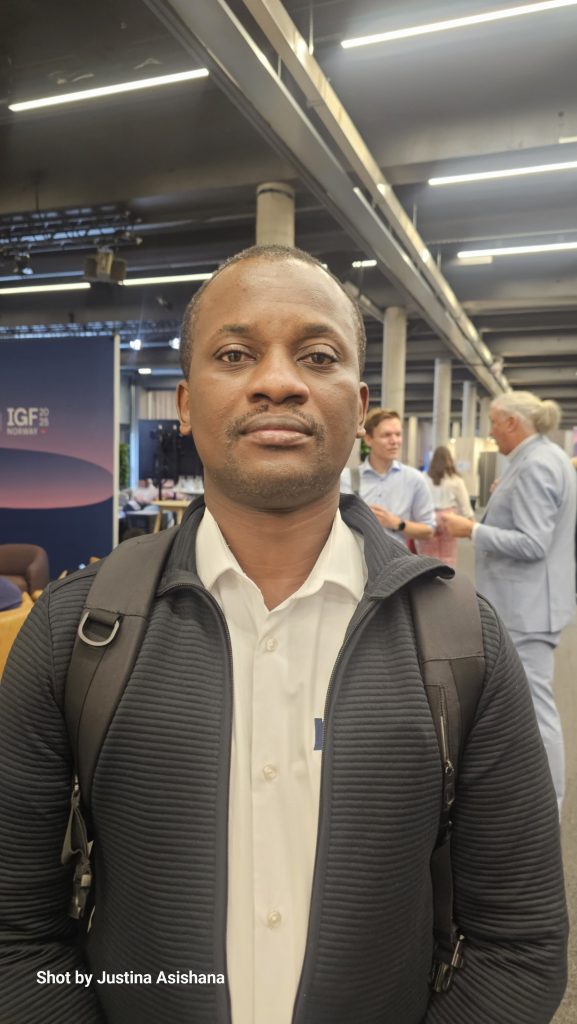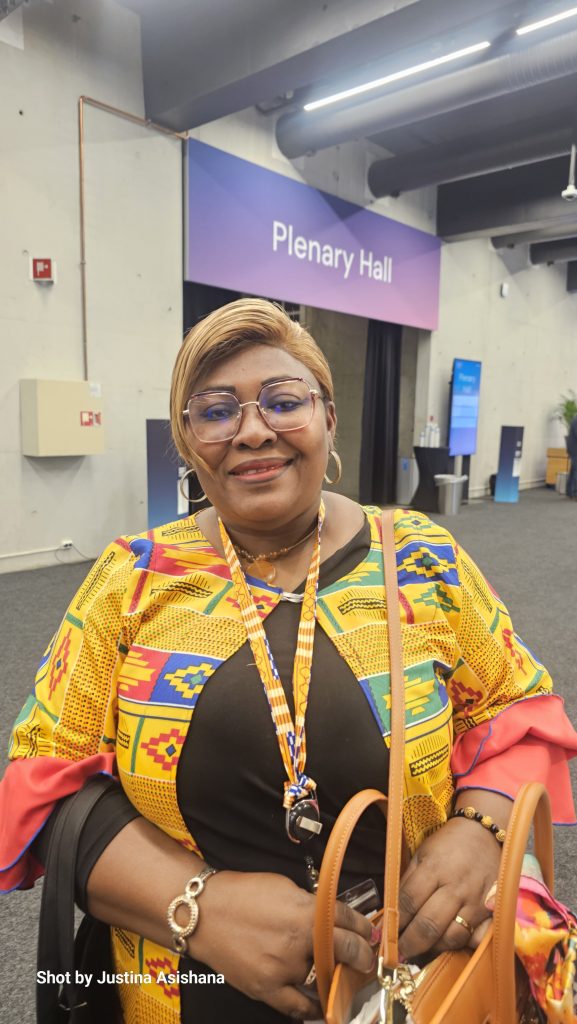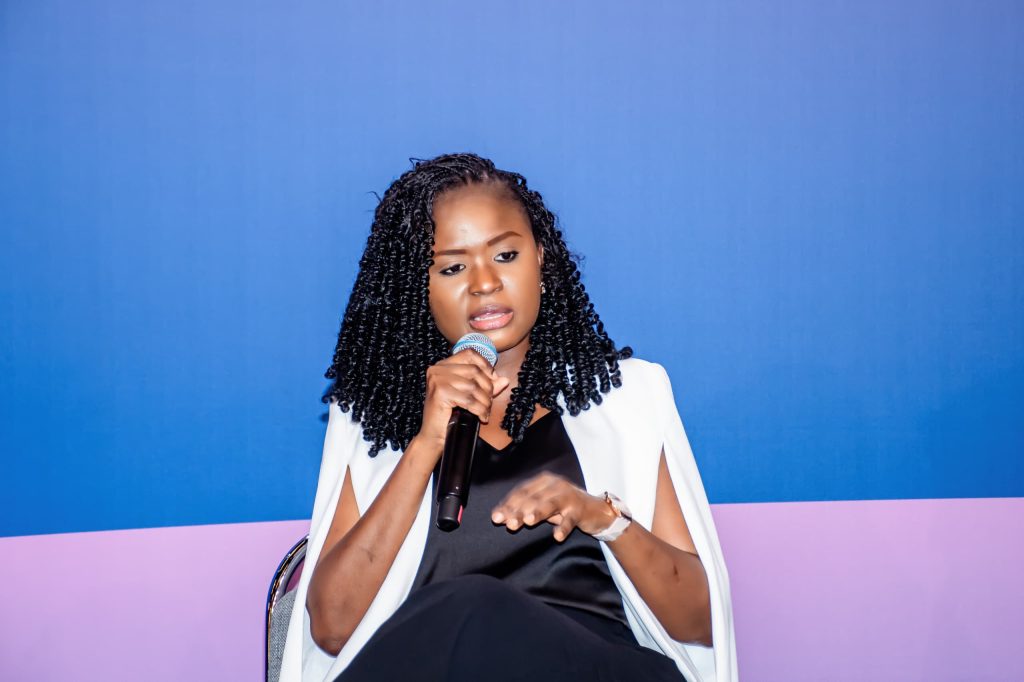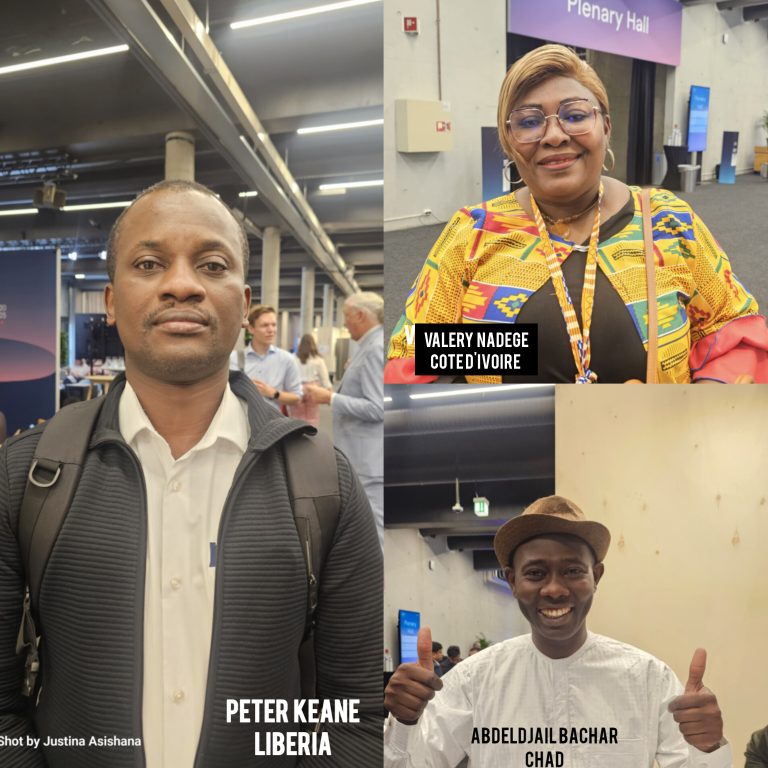Imagine a future where every young person in Africa can use the internet and new tech to their full potential. That is the big dream, and it is super close to coming true!
By Justina Asishana
But to get there, there is the need to teach Africa’s young people all about computers and the internet, starting right in their own neighborhoods.
This important message was loud and clear at the 2025 Internet Governance Forum, where African leaders pushed for everyone to learn digital skills to help Africa catch up in the fast-paced tech world.
Peter Keane, National Coordinator for Liberia’s Internet Governance Forum (IGF), underscores the need for widespread digital literacy to truly bridge Africa’s persistent digital divide.
Keane, an active member of the Liberia IGF and a representative at the West Africa IGF Planning Committee, paints a vivid picture of Africa’s digital landscape, acknowledging that the continent is still catching up with the rapid pace of technological advancement seen in Europe and elsewhere.
“The digital future of Africa is very, very promising. We only need to follow the rules of ensuring that we empower, educate, enlighten and make sure that our youth in Africa get to understand the need to be digitally literate.”

“If a country can implement digital literacy programs in its capital cities, outside the capital cities, there is a need to domesticate digital literacy to the level where even the market woman knows the importance of using mobile money, then we are safe.
“Because at the end of the day, to catch up, we must be ready to also empower ourselves to know that though, Europe is always ahead, if we adopt a systematic approach of introducing our African kids to the internet early, our African youths will have a strong role to play in the ecosystem to ensure that we get a path with digital literacy,” he said.
This sentiment resonates deeply with the stark reality highlighted at the forum where it was stated that an estimated 2.7 billion people globally remain unconnected, with the vast majority residing in Africa.
For Keane and other Africans at the conference, this is not just a statistic; it is a clarion call to action.
Read Also: TRAVELOUGUE: A journey through Oslo’s Nobel Peace Center rekindles a personal mission
It demands a systematic approach to digital education, starting not in the gleaming towers of capital cities, but in the most rural communities.
“If a country can implement digital literacy programs in the capital, outside the capital, domesticate digital literacy to the level where even the market woman knows the importance of using mobile money, then we are safe,” Keane asserted.
He added that forums like the IGF are opportunities to push African governments to act faster, “When companies collect our personal information and sell it without consent, there must be laws to stop it,” he insisted.
Valery Nadege Goue, the Deputy Director for the Development of Digital Trust in Côte d’Ivoire, said that Africa’s slow adoption of new technologies, including Artificial Intelligence (AI), is not because of inability but because the pace of innovation is faster than the systems in place across the continent.

“We are going somewhere. Maybe slowly, but we will arrive. Technology is going very fast, and we are always trying to catch up. But Africans can adopt and use technology like Europeans if we take time to learn the technology, to see what is very important for us and to put what is important in our development.”
Abdeljalil Basharbong, the IGF Coordinator from Chad, argued that connectivity remains Africa’s biggest hurdle, “Internet gives us the chance to connect with the world, but the question is, are we ready? In rural Africa, internet access is still a dream.”
Basharbong said that the internet should not only be seen as an urban tool, as it helps in improving financial inclusion and helps families stay connected, “But sadly, most rural communities are still offline.”
Basharbong further elaborated that a lot of gaps still exist across Africa in terms of technological adoption and preparedness, stressing the need for community networks and public-private partnerships to close the gap.
“We can’t depend on governments alone. Everyone, the media, the private sector, women, and youth must work together. While it is the primary responsibility of governments to push for infrastructure development and ensure data security, there is a need for a universal fund and effective ICT agencies and regulators.
Among the leading figures at the forum was Salimah Bah, Sierra Leone’s Minister of Communications, Technology and Innovation. As the youngest and one of the few female ministers in the region, Bah highlighted the progress being made across Africa to prioritize digital transformation.
“Why are we focusing on technology? Because we’re already late,” she said. “If we truly want to leapfrog and catch up with the rest of the world, technology is no longer a luxury, it is an essential.”

Bah spoke proudly of Sierra Leone’s tech journey, including the recent launch of West Africa’s first open-access 5G network by the private sector.
She credited this success to the government’s deliberate efforts to attract private investments, develop policies, and build a digital-friendly ecosystem.
The Minister also reflected on the importance of female leadership in tech. “We now have a growing number of young women leading ICT ministries across Africa, from Togo to Rwanda to Namibia. It’no longer strange to see women in these roles. We lean on each other, support each other, and that’s inspiring for the next generation of girls.”
On what Sierra Leone and other African nations can learn from models like Estonia, Bah pointed to the need for long-term vision, digital identity systems, and citizen-centered service delivery.
“We must move from just consuming tech to developing and exporting our own innovations. We want to build ecosystems where African solutions solve African problems.and then scale globally.”
Other Africans agreed that though the current state of internet governance, AI policy, and access in Africa may not look good enough now, it can be fixed through collaboration, education, and smart regulation.
They also warned against Africans being unconcerned about global conversations about the internet and new technologies calling for more African voices in these global spaces.
Jason Adams, a technologist from Delta state in Nigeria stressed that Africa must not isolate itself but build partnerships across countries and continents.
“No country knows it all. We must look beyond our borders and work together if we want real development. But let us not give up. The future is coming and we can meet it prepared if we act now.”


